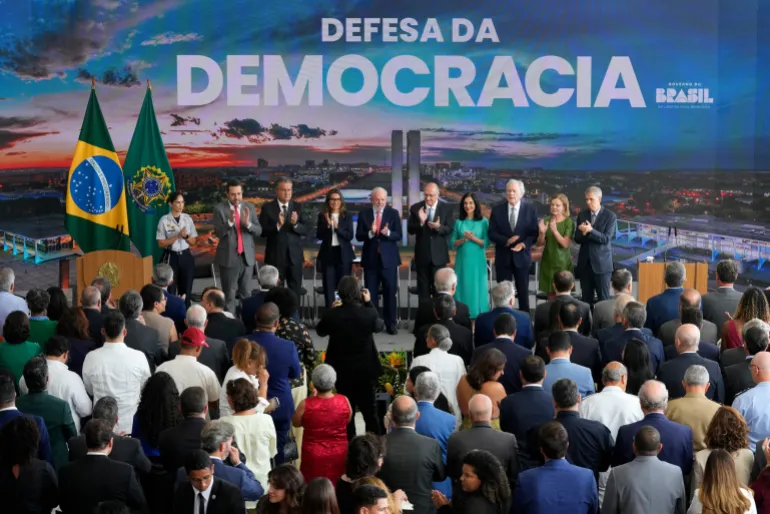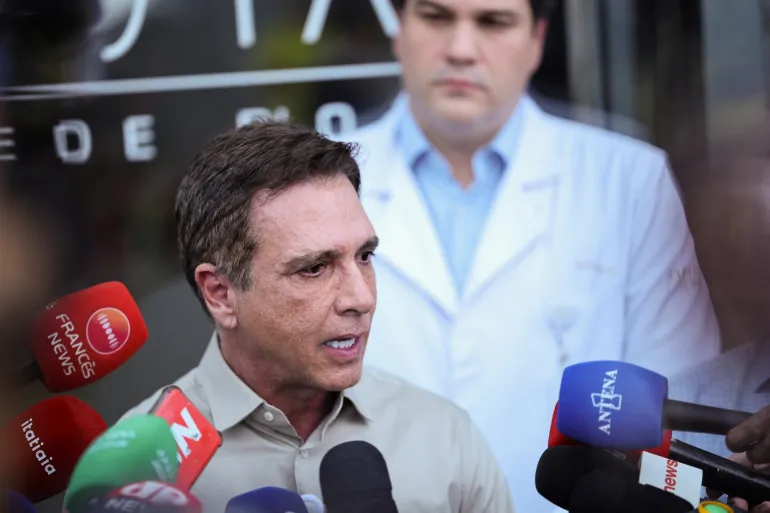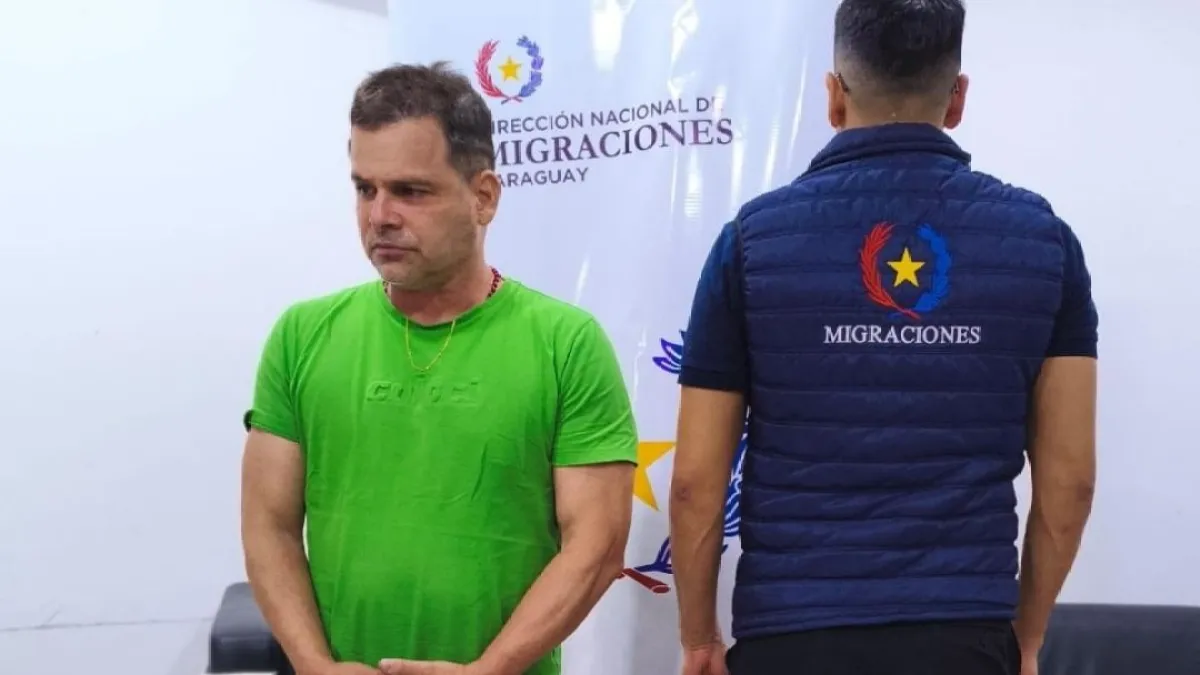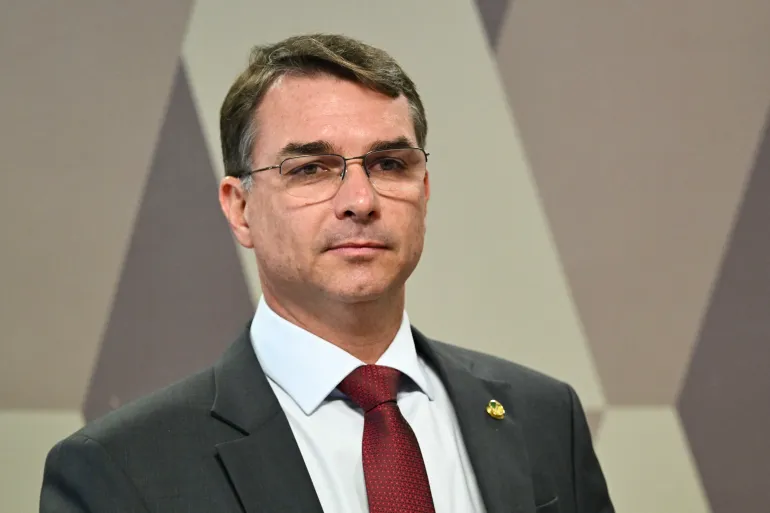Brazil’s President Lula vetoes bill to trim Bolsonaro prison sentence | Jair Bolsonaro News
Brazilian President Luiz Inacio Lula da Silva has vetoed a bill that would have reduced the prison sentence of his right-wing rival and predecessor, Jair Bolsonaro, who was convicted of plotting a coup.
On Thursday, Lula followed through with his promise to block the legislation, which had passed Brazil’s opposition-controlled Congress last year.
Recommended Stories
list of 3 itemsend of list
“In the name of the future, we do not have the right to forget the past,” Lula wrote in a series of social media posts, saying that it would have benefitted “those who attacked Brazilian democracy”.
The veto came on the third anniversary of the 2023 attack on the Three Powers Plaza in the capital of Brasilia, where government buildings representing the presidency, Congress and the Supreme Court stand.
On January 8 of that year, thousands of Bolsonaro supporters stormed the buildings in an apparent attempt to provoke a military response that would remove Lula from power.
In marking the anniversary of the attack, Lula called on Brazilians to stand up for their young democracy, which began after a period of violent dictatorship in the late 20th century.
“January 8th is marked in history as the day of democracy’s victory. A victory over those who tried to seize power by force, disregarding the popular will expressed at the ballot box. Over those who have always defended dictatorship, torture, and the extermination of opponents,” Lula wrote online.
“The attempted coup on January 8, 2023, reminded us that democracy is not an unshakeable achievement.”

Bolsonaro’s sentence
The January 8 attack caused millions of dollars in property damage and dozens of injuries, as police and protesters clashed in the government plaza.
The incident evoked comparisons to the violent riot at the United States Capitol on January 6, 2021, where supporters of President Donald Trump attempted to disrupt the certification of his 2020 election defeat.
Likewise, Bolsonaro, a former army captain, had refused to concede his defeat to Lula after a narrow loss in the 2022 elections.
Rather, he and his allies had argued that Brazil’s electronic voting machines were susceptible to fraud, and they challenged the election results in court. Their petition, however, was thrown out for its “total absence of any evidence”.
Still, many of Bolsonaro’s supporters backed his claims and took to the streets to protest the election results. The weeks surrounding Lula’s inauguration in January 2023 were fraught, with reports of a bomb threat and an attack on police headquarters in Brasilia.
Prosecutors later accused Bolsonaro and his allies of leading a criminal conspiracy to overturn the election results.
One of the options the defendants allegedly weighed was to declare a “state of siege” in Brazil, which would allow the military to take control and new elections be held. Another option was reportedly to assassinate Lula and his running mate, Geraldo Alckmin.
Bolsonaro has pleaded not guilty to the charges and denied any wrongdoing, framing the accusations instead as a political hit job.
Still, in September, he was sentenced to 27 years in prison after being found guilty on counts including attempting a coup, causing damage to public property, attempting the violent abolition of the democratic rule of law, participation in a criminal enterprise, and the deterioration of a listed national heritage site.
He began his prison term in November, after he was found to have damaged the ankle monitor used to ensure he was not a flight risk.
Weighing October’s election
Conservative politicians, however, have decried the prison sentence as excessive and called for its reduction.
Bolsonaro’s son Eduardo has petitioned the Trump administration in the US to intervene on behalf of the imprisoned ex-president, and his eldest child, Flavio Bolsonaro, even hinted he might suspend his 2026 presidential bid if his father were released.
On December 10, Brazil’s Chamber of Deputies passed legislation that would reduce the sentences of nearly 1,000 people linked to the January 8 attack, including Bolsonaro.
A week later, on December 17, the Senate followed suit, sending the leniency bill to the president for his signature.
But Lula had repeatedly pledged to reject the bill, risking the possibility that Brazil’s Congress could override his veto.
“ This is a bill that really is a litmus test in Brazilian politics,” Gustavo Ribeiro, a journalist and founder of The Brazil Report, told Al Jazeera. “Conservatives overwhelmingly supported it, while liberals are adamantly against it.”
Still, Ribeiro described the bill as a compromise between Brazil’s centre-right and far-right forces.
“The centre-right tried to work a sort of a middle-of-the-road solution that is not full amnesty but would allow Bolsonaro to leave incarceration after two years, in what we call in Brazil a semi-open prison sentence,” he explained.
He sees Brazil’s general election in October as a significant factor in Congress’s passage of the bill, noting that Bolsonaro remains a popular figure on the right.
“Because Bolsonaro has such a big clout with conservatives, many in Congress – many right-of-centre lawmakers – fear that if they do not lend their full support to any cause that Bolsonaro espouses, they will lose support,” Ribeiro said.
Lula is seeking a fourth term as president in October’s election, and he is expected to face Bolsonaro’s son Flavio at the ballot box.






